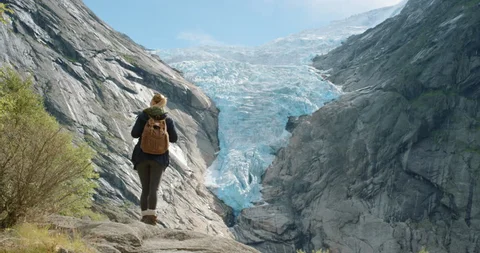A new study by scientists has found that the world’s glaciers are in dire health with almost 40% of their total mass already doomed, even if global temperatures stopped rising immediately.
Researchers estimate glaciers will eventually lose 39% of their mass relative to 2020, a trend that is already irreversible no matter what comes next and will likely contribute a 113-millimeter increase to global sea level rise.
The loss rises to 76% if the world continues to pursue its current climate policies, which will likely fail to keep global warming under 1.5 degrees Celsius, according to a paper published in the journal Science.
The latter scenario could prove disastrous for countries that depend on glacial meltwater for irrigation, power and drinking water; a world in which 39% of the glacier mass is lost compared to 76% is the “difference between being able to adapt to the loss of the glacier and not,” James Kirkham, a glaciologist at the International Cryosphere Climate Initiative told CNN.
Read also: Nigerian government seeks alignment of NDC climate action with economic sectors
Even though the study offers a bleak prognosis for the world’s glaciers, its authors are trying “to give a message of hope,” said Lilian Schuster, a researcher at the University of Innsbruck in Austria, who co-led the study.
“With the study, we want to show that with every tenth of a degree less of global warming, we can preserve glacier ice,” she told CNN.
Nearly 200 nations pledged to work together in the 2015 Paris Agreement to limit global warming. Nations committed to keep global warming below 2 degrees Celsius above pre-industrial levels and, if possible, below 1.5 degrees. Each country is responsible for developing its own plans for achieving those goals.
But temperatures keep rising — the world is currently on track for up to 2.9 degrees of warming by 2100. And every additional increase of 0.1 degrees between 1.5 and 3 degrees of warming results in an additional 2% of the global glacier mass being lost, the study predicts.
“We’re not activists, this is science talking,” said Harry Zekollari, a researcher at Vrije Universiteit Brussel in Belgium and ETH Zürich in Switzerland, who co-led the study.
Story was adapted from CNN.
